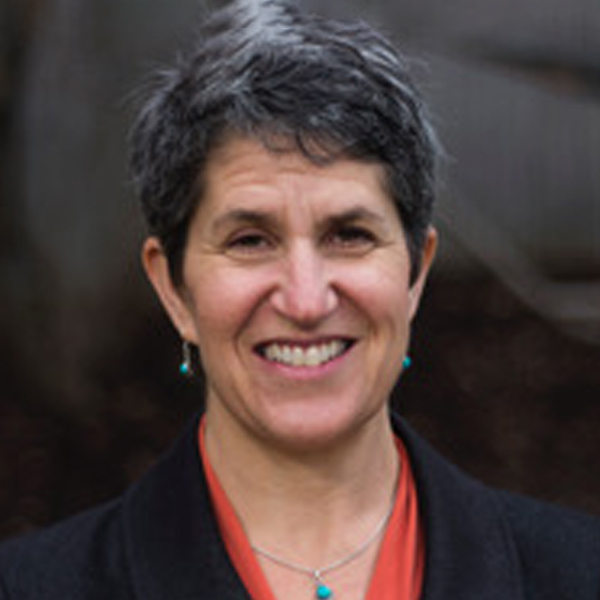- Identifying a population with a high TB incidence for vaccine efficacy assessments
- The ethical considerations for TB vaccine clinical trials
- Lessons learned from HIV prevention clinical trials that might be applied in TB vaccine trials
Register for the event today and join us for the discussion.
About the Panel

Vice President, Global Strategy
FHI Clinical
With more than twenty years of experience in clinical research monitoring and management, Ghiorghis Belai serves as FHI Clinical’s Vice President, Global Strategy. In this role, Belai is responsible for managing FHI Clinical’s relationships with sponsors and sites, and he works on project feasibility to ensure optimal implementation of trials.
Belai previously served as Director of Clinical Operations for FHI 360, where he managed the clinical research unit based in Nairobi, Kenya, while supervising and mentoring the FHI 360 Africa Regional Clinical Research Unit. In this role, Belai was responsible for reviewing study protocols, coordinating study implementation of multi-center and multi-country trials in Africa, and ensuring that studies adhered to protocol requirements and applicable regulations and guidelines.
With a background in clinical research, Belai has also worked as a clinical research associate for PharmaNet Development Group, Inc., and PPD, where he participated in multiple multi-center clinical research studies, assisted with project data clinical review and management, and presented at investigator meetings for assigned studies. In addition, Belai monitored sites according to applicable standard operating procedures and Food and Drug Administration guidelines and reviewed case report forms for adherence to protocol requirements.

Professor of Global Health and Social Medicine, Harvard Medical School
Dr. Mitnick’s research centers on the improvement of clinical management and programmatic policy for tuberculosis and multidrug-resistant tuberculosis (MDR-TB) globally. Dr. Mitnick is a founding investigator of a movement to conduct randomized controlled clinical trials to improve treatment of drug-resistant TB (RESIST-TB). Dr. Mitnick’s work also includes applying marginal structural modeling to MDR-TB treatment data to assess the effect on outcomes of different types of therapy in observational studies. Dr. Mitnick is the principal investigator of an NIAID grant to plan a Phase II clinical trial examining the potential of high-dose rifampin to shorten standard TB therapy. Her research questions are strongly influenced by the mission of Partners In Health, with which Dr. Mitnick has worked since 1996: she strives to conduct research that will effect changes in global policy to ensure the highest standard of care and best treatment outcomes for patients suffering from all forms of tuberculosis, regardless of where they live.
This influence has also driven Dr. Mitnick’s involvement in global policy efforts. She contributed to the original and revised Guidelines for the Programmatic Management of MDR-TB. She sought, through the publication, Randomized trials to optimize treatment of MDR-TB: the time for action is now (PLoS Medicine, 2007), to generate increased support for controlled examination of anti-mycobacterial agents for the treatment of MDR-TB. Through participation in working groups, sub-groups, and task forces of the STOP-TB Partnership, she has co-authored two articles which define research agendas for MDR-TB (Gupta et al., IJTLD, 2003; Cobelens et al., PLoS Medicine 2008) and one that proposed standardized definitions for analysis of MDR-TB treatment outcomes (Laserson et al., IJTLD, 2005). She consults for the Green Light Committee of the World Health Organization for francophone countries implementing programmatic management of MDR-TB. Her efforts extend to capacity building for recording and reporting on the management of drug-resistant TB, as well as to clinical and operational research in Latin America and beyond. She develops and participates in post-graduate trainings, network-building activities, and trial protocols to be implemented within settings of national TB programs around the world.

FHI Clinical Scientific Advisory Expert
Founder and Principal Scientist, EpiPointe
Dr. Falgunee Parekh is Founder and Principal Scientist of EpiPointe, a woman-owned small business focused on the development and implementation of clinical research studies for various infectious and emerging diseases including malaria, dengue, Zika, brucellosis, Lassa fever, influenza and tuberculosis. She has led the development of field epidemiology studies and clinical trials for vaccines and interventions targeted at infectious diseases in international settings including South America, South Asia, West and East Africa and former Soviet Union countries. Her research interests focus on assessing the epidemiology and immunologic factors associated with severe disease versus protection and how this informs the development and testing of vaccines and therapeutics against infectious diseases. She also currently serves on the leadership committee for the Global Health Security Agenda Consortium.

FHI Clinical Scientific Advisory Expert
Dr. Jon “Ben” Woods is a pediatric infectious disease physician and retired United States Air Force Colonel. Before supporting FHI, he was President of HJF Medical Research International (HJFMRI), a subsidiary non-profit of the Henry Jackson Foundation for the Advancement of Military Medicine. Prior to HJFMRI, he was Senior Antimicrobial Resistance (AMR) and Tuberculosis Technical Advisor to the Global Health Bureau at USAID. He has broad US domestic and international infectious disease clinical, programmatic and research experience spanning over two decades. His experience ranges from directing the US Army’s medical research field station in Kisumu, Kenya, overseeing pediatric malaria vaccine trials and infectious disease surveillance, serving as the Defense Intelligence Agency’s lead Medical WMD Advisor and Subject Matter Expert (SME) for design of their deployable microbial forensics laboratory, to supporting investigational new drug (IND) applications for emerging and biological warfare threat agents and running the biosafety level-4 (BSL-4) treatment facility,while at the US Army Medical Research Institute for Infectious Disease (USAMRIID) at Fort Detrick, Maryland.
Dr. Woods received his Doctor of Medicine degree from the Uniformed Services University of the Health Sciences (USUHS), completed residency training in pediatrics at Wright Patterson Air Force Base Hospital/Wright State University and his fellowship in pediatric infectious diseases at the USUHS, where his research focused on animal models of enterohemorrhagic Escherichia coli disease.


